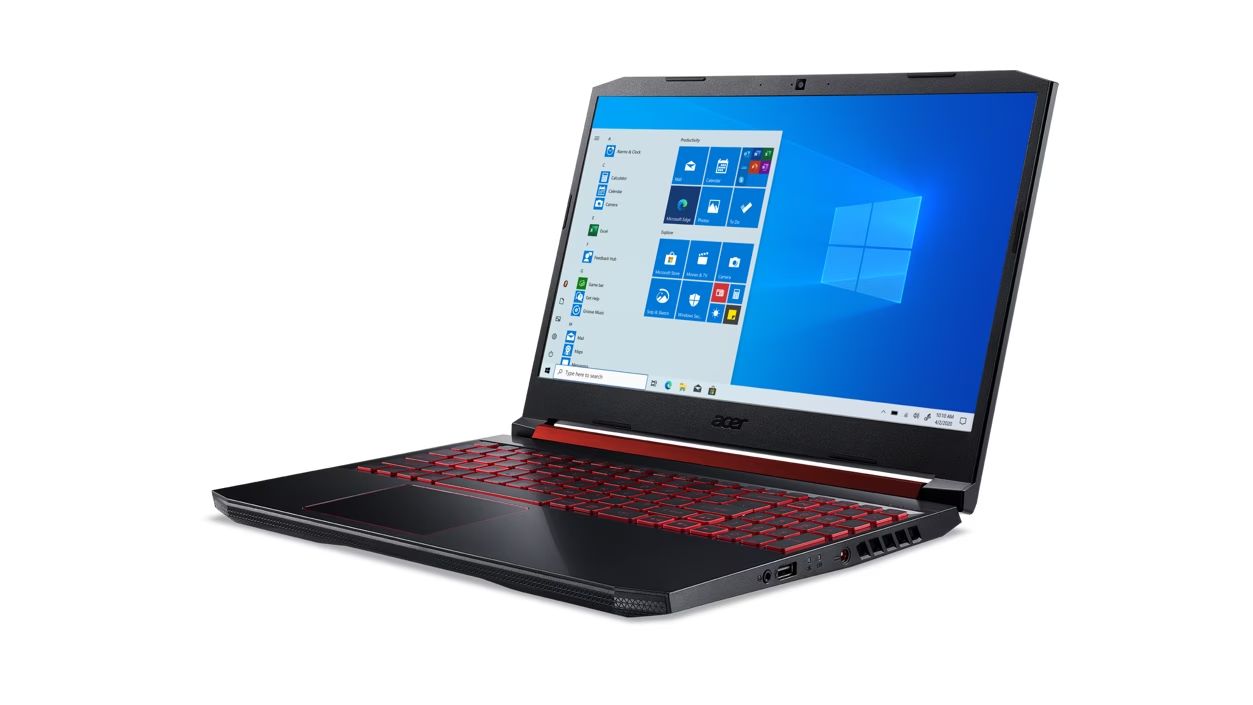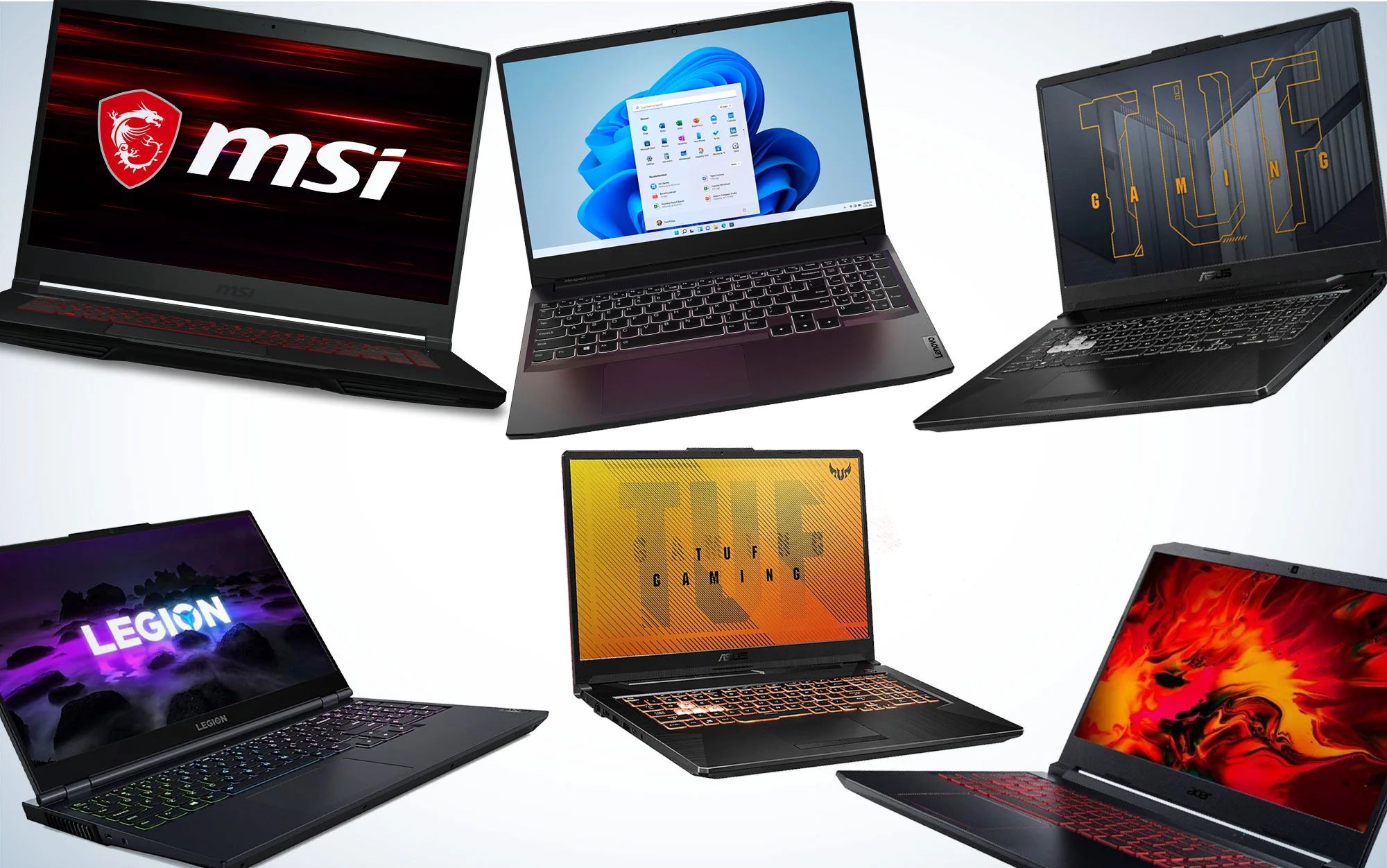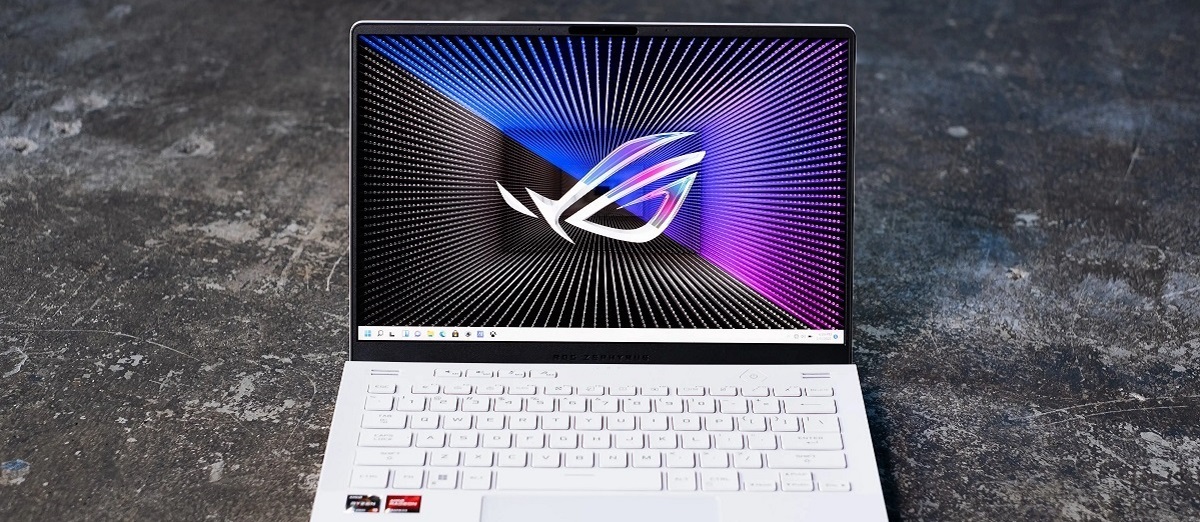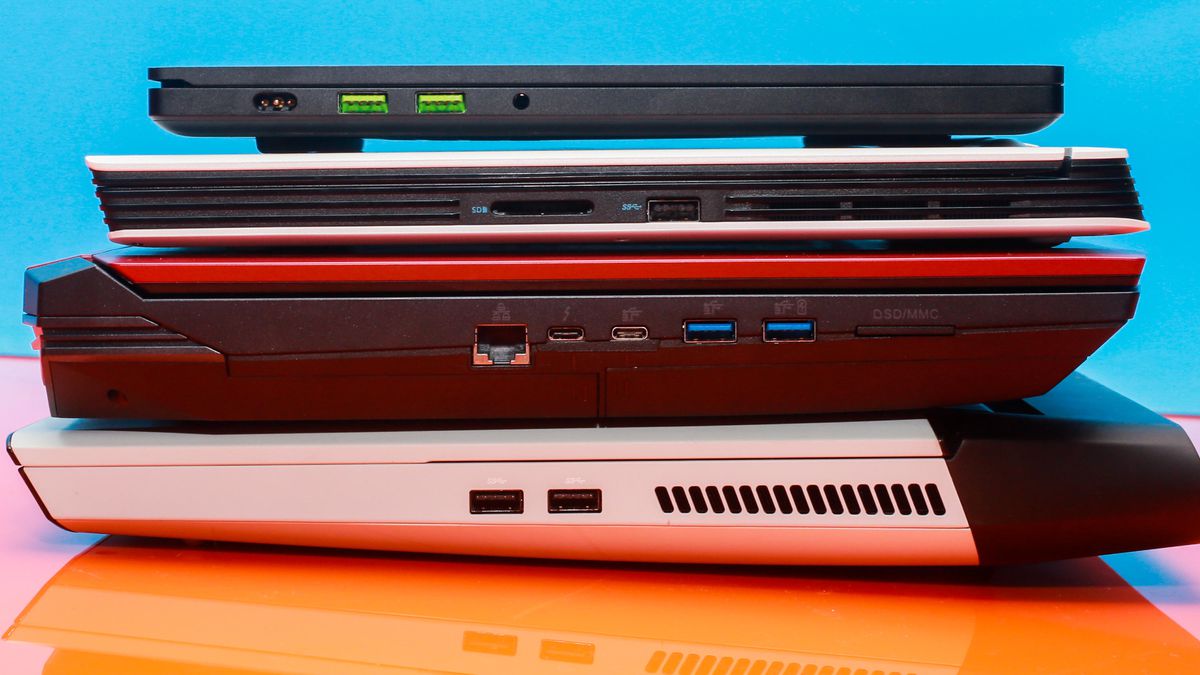Processor
One of the most important factors to consider when buying a gaming laptop is the processor. The processor, also known as the central processing unit (CPU), is responsible for executing instructions and performing calculations, making it a crucial component for gaming performance.
When it comes to processors for gaming laptops, you will generally want to look for one that offers powerful performance and multitasking capabilities. Processors from Intel and AMD are the most popular choices for gaming laptops. Intel’s Core i5 and i7 processors, as well as AMD’s Ryzen 5 and 7 processors, are known for delivering excellent gaming performance.
The number of cores and the clock speed are important considerations when choosing a processor. The more cores a processor has, the better it can handle multitasking and processing large amounts of data. A higher clock speed means faster processing, resulting in smoother gameplay and quicker response times.
Another factor to consider is the generation of the processor. Each new generation typically offers improvements in performance and power efficiency. While it’s not necessary to always opt for the latest generation, choosing a processor from a relatively recent generation ensures that you get good performance and future-proofing for upcoming games.
Lastly, it’s worth considering whether you want to go for a desktop-class processor or a mobile processor. Desktop-class processors, such as Intel’s Core i9 or AMD’s Ryzen 9, offer top-tier performance but can result in a bulkier and heavier laptop, as they require more power and generate more heat. On the other hand, mobile processors like Intel’s H-series and AMD’s Ryzen Mobile processors offer a good balance between performance and portability.
Overall, when it comes to the processor, it’s essential to find a balance between performance, power efficiency, and portability based on your gaming needs. Investing in a laptop with a powerful processor ensures that you can run demanding games smoothly and enjoy an immersive gaming experience.
Graphics Card
When it comes to gaming laptops, having a powerful graphics card is crucial for delivering stunning visuals and smooth gameplay. The graphics card, also known as the GPU (Graphics Processing Unit), handles the rendering and processing of images, textures, and effects in games.
There are two primary brands for graphics cards in gaming laptops: NVIDIA and AMD. NVIDIA’s GeForce RTX and GTX series are popular choices, while AMD’s Radeon RX series offers competitive performance as well. These graphics cards come in different variants, each with varying levels of performance and price range. It’s important to choose a graphics card that meets the requirements of the games you plan to play.
When considering a graphics card, pay attention to the VRAM (Video Random Access Memory) capacity. The VRAM is dedicated memory for the graphics card and plays a crucial role in storing and accessing game data. Games with high-quality textures and demanding graphics require more VRAM to run smoothly. Aim for a graphics card with at least 4GB of VRAM for a decent gaming experience, but if you can afford it, go for a laptop with 8GB or more.
Another important aspect to consider is whether the graphics card supports ray tracing technology. Ray tracing enhances the lighting and reflections in games, resulting in more realistic visuals. NVIDIA’s RTX series is known for its ray tracing capabilities, offering a more immersive gaming experience.
It’s worth noting that the graphics card is one of the components in a gaming laptop that cannot be upgraded easily. Unlike desktop computers, where you can swap out a graphics card, gaming laptops generally have their graphics cards soldered onto the motherboard. Therefore, it’s essential to invest in a laptop with a capable graphics card from the start.
Ultimately, the graphics card is essential for the overall gaming experience on a laptop. A powerful graphics card ensures that you can play games at higher resolutions, with smoother frame rates, and with all the visual enhancements that modern games offer. Consider your gaming preferences and budget to find a gaming laptop with a graphics card that fulfills your needs.
RAM
RAM, or Random Access Memory, is a vital component of a gaming laptop that directly affects its performance. RAM helps in running multiple tasks simultaneously and provides fast access to data, including game files and textures. Having sufficient RAM ensures smooth gameplay, quick loading times, and a lag-free gaming experience.
When it comes to RAM, it’s ideal to opt for a minimum of 8GB, especially for gaming. However, for more demanding games and multitasking, consider going for 16GB or even 32GB of RAM. Having more RAM allows the laptop to handle resource-intensive games and enables smoother multitasking without any slowdowns.
Another factor to consider is the RAM speed or frequency. Higher RAM speeds result in faster data transfer, which can enhance the overall gaming performance. Look for RAM modules with higher clock speeds, such as DDR4 RAM with speeds of 2666MHz or higher.
In addition to capacity and speed, it’s essential to ensure that the laptop has upgradeable RAM. Some laptops come with soldered RAM, making it difficult or impossible to upgrade in the future. Opting for a laptop with expandable RAM slots provides the flexibility to upgrade the RAM capacity as needed.
Lastly, consider the RAM configuration of the laptop. Dual-channel memory configuration, which utilizes two RAM modules, offers improved performance compared to single-channel configurations. Look for laptops that come with dual-channel RAM, as it allows for better data transfer and overall system performance.
In summary, having sufficient RAM in a gaming laptop is crucial for smooth gaming performance and multitasking capabilities. Aim for a minimum of 8GB, with 16GB or higher being ideal for more demanding games. Look for higher RAM speeds and ensure the laptop has upgradeable RAM for future flexibility. Opting for a laptop with a dual-channel memory configuration further enhances the overall performance. Consider your gaming needs and budget to find the right RAM configuration for your gaming laptop.
Storage
When it comes to storage in a gaming laptop, it’s essential to strike a balance between speed and capacity. The storage options available for gaming laptops are traditional hard disk drives (HDDs) and solid-state drives (SSDs).
HDDs offer large storage capacities at a more affordable price point, making them suitable for storing a vast library of games and other media files. However, they are slower in terms of data access and can lead to longer loading times in games. If you choose a gaming laptop with an HDD, it’s recommended to opt for one with a higher rotational speed (such as 7200 RPM) for improved performance.
On the other hand, SSDs are faster and offer quicker data access, resulting in snappier system responsiveness and faster game load times. SSDs are available in different capacities, ranging from 256GB to 2TB or more. While SSDs are more expensive per gigabyte compared to HDDs, the improved speed and performance they provide are well worth considering, especially if you want a smooth gaming experience.
For optimal performance, some gaming laptops offer a combination of both HDD and SSD storage options. This configuration allows you to take advantage of the large storage capacity of an HDD for storing games and media files, while still benefiting from the speed and responsiveness of an SSD for faster system boot times and frequently accessed games and applications.
If budget allows, consider opting for an SSD as the primary storage option for your gaming laptop. If you require additional storage space, you can always invest in an external hard drive or utilize cloud storage solutions for offloading files.
In summary, when considering storage for a gaming laptop, it’s crucial to find the right balance between storage capacity and speed. SSDs offer faster performance and quick load times, while HDDs provide larger storage capacities at a more affordable price. A combination of both HDD and SSD can provide the best of both worlds. Consider your budget, game library size, and need for speed when choosing the storage option for your gaming laptop.
Display
The display of a gaming laptop plays a significant role in the overall gaming experience. When considering the display, there are several factors to keep in mind, including size, resolution, refresh rate, and panel type.
The size of the display is a matter of personal preference and portability requirements. Gaming laptops typically come in sizes ranging from 15 to 17 inches, with larger displays offering a more immersive gaming experience but sacrificing portability. Choose a size that suits your gaming needs and fits within your desired level of portability.
Resolution is another important consideration. Higher resolutions, such as 1080p (Full HD), 1440p (QHD), or even 4K (Ultra HD), provide sharper and more detailed visuals, enhancing the gaming experience. However, keep in mind that higher resolutions require more powerful hardware to drive games at higher graphical settings.
The refresh rate of the display determines how many times the image on the screen refreshes per second. Higher refresh rates, such as 144Hz or 240Hz, result in smoother motion and reduced motion blur, making fast-paced games feel more responsive. If you mainly play competitive and action-packed games, consider opting for a gaming laptop with a high refresh rate display.
Panel type is another consideration when it comes to the display. The most common types are TN (Twisted Nematic) and IPS (In-Plane Switching). TN panels offer fast response times and high refresh rates but have narrower viewing angles and less accurate colors. IPS panels, on the other hand, provide wider viewing angles and better color accuracy but may have slightly slower response times.
In addition to these factors, some gaming laptops offer features like G-Sync or FreeSync. These technologies synchronize the display’s refresh rate with the graphics card’s output, reducing screen tearing and providing smoother gameplay.
Lastly, consider the brightness levels and color reproduction of the display. Brighter displays with accurate color representation ensure that you can see details clearly and experience vibrant visuals while gaming.
In summary, when choosing a gaming laptop display, consider factors such as size, resolution, refresh rate, panel type, brightness, and color accuracy. Opt for a resolution and refresh rate that suits your gaming needs, and choose a panel type based on your preference for viewing angles and color accuracy. Remember to balance display features with hardware requirements to ensure optimal gaming performance.
Cooling System
The cooling system of a gaming laptop is crucial to maintain optimal performance and prevent overheating during intense gaming sessions. When considering the cooling system, it’s important to look for effective cooling solutions that can handle the heat generated by powerful processors and graphics cards.
Gaming laptops generally utilize a combination of fans, heat sinks, and heat pipes to dissipate heat from the internal components. The number and size of fans, as well as the positioning of vents, play a significant role in ensuring efficient heat dissipation.
When evaluating a gaming laptop’s cooling system, look for laptops with multiple fans, preferably with dedicated fans for the CPU and GPU. This allows for better airflow and targeted cooling, reducing the risk of thermal throttling and performance drops.
Heat sinks and heat pipes help in transferring heat away from the main components and dispersing it across a larger surface area, allowing the fans to blow the heat away more effectively. Copper heat pipes are commonly used due to their excellent heat conductivity properties.
Some gaming laptops also feature advanced cooling technologies such as vapor chamber cooling or liquid metal thermal compounds. Vapor chamber cooling spreads heat evenly across a larger area, while liquid metal thermal compounds offer better heat transfer between the components and the cooling system.
In addition to hardware-based cooling solutions, software-based fan control and monitoring systems can also improve cooling efficiency. Some laptops come with pre-installed software that allows you to customize fan speeds and monitor system temperatures. This gives you the ability to manually adjust the cooling performance based on your gaming needs.
Adequate airflow is essential for efficient cooling. Look for laptops with well-designed ventilation systems and strategically placed vents to ensure a constant flow of cool air into the laptop and the expulsion of hot air away from the internal components.
Regular maintenance and cleaning of the cooling system are also important to prevent dust buildup, which can hinder airflow and lead to overheating. Use compressed air or a soft brush to remove dust from the intake and exhaust vents regularly.
In summary, a reliable and efficient cooling system is essential for a gaming laptop to ensure optimal performance and prevent overheating. Look for laptops with multiple fans, effective heat sinks and heat pipes, and well-designed ventilation systems. Consider advanced cooling technologies and software-based fan control for better cooling performance. Regular maintenance and cleaning of the cooling system are also necessary to maintain efficient heat dissipation and prevent dust buildup.
Battery Life
Battery life is an important consideration when it comes to gaming laptops, especially if you plan on gaming on the go or in situations where a power outlet is not readily available. While gaming laptops are generally not known for their long battery life compared to other laptop categories, it’s still essential to find a balance between portability and the duration you can game on battery power.
Gaming laptops typically consume more power due to the powerful components they house, such as high-wattage processors and dedicated graphics cards. As a result, it’s common for gaming laptops to have a shorter battery life compared to ultrabooks or thin and light laptops. However, advancements in technology and the use of more power-efficient components have led to improvements in battery life in recent years.
When considering battery life, it’s essential to look for laptops with larger battery capacities. Higher capacity batteries generally provide longer battery life, allowing you to game for extended periods without needing to plug in. Look for laptops with battery capacities of 60Wh or higher for better battery performance.
The actual battery life of a gaming laptop will depend on various factors, including the intensity of the game being played, screen brightness, background applications, and the power settings you choose. It’s important to adjust power settings, such as screen brightness and CPU power modes, to optimize battery usage while gaming on battery power.
It’s worth noting that gaming laptops often have hybrid graphics technologies, such as NVIDIA’s Optimus or AMD’s Switchable Graphics, which allow the laptop to switch between integrated and dedicated graphics depending on the usage scenario. This technology helps improve battery life by utilizing lower-power integrated graphics for non-demanding tasks and switching to the dedicated graphics card for gaming when needed.
If you plan on gaming for extended periods without access to a power outlet, consider investing in a laptop with a removable battery or a laptop that supports external battery packs. This allows you to swap out depleted batteries for freshly charged ones, effectively extending your gaming sessions.
In summary, battery life is an important consideration for gaming laptops, especially for portable gaming. Look for laptops with larger battery capacities and power-efficient components. Adjusting power settings and utilizing hybrid graphics technologies can help optimize battery usage. Consider laptops with removable batteries or support for external battery packs if extended gaming on battery power is necessary for your needs.
Keyboard and Trackpad
The keyboard and trackpad are crucial elements of a gaming laptop that greatly impact the overall gaming experience and usability. When evaluating a gaming laptop, it’s important to consider the quality, layout, and features of the keyboard and trackpad.
Starting with the keyboard, look for a gaming laptop that offers a responsive and comfortable typing experience. Backlit keyboards are a popular feature among gaming laptops, allowing you to game in dimly lit environments without straining your eyes. Some keyboards even offer customizable RGB lighting for a more personalized and visually appealing experience.
Key travel and actuation force are important factors to consider. Look for keyboards with sufficient key travel, as it provides a better tactile feedback and makes typing and gaming more comfortable. Additionally, keyboards with a lower actuation force require less effort to register key presses, resulting in faster and more accurate input during intense gaming sessions.
Gaming laptops often come with additional keys or dedicated macro keys that can be programmed for quick access to in-game commands or macros. These extra keys can enhance gameplay by providing shortcuts or custom functions, allowing you to perform actions more efficiently.
The trackpad, although not as crucial for gaming as the keyboard, is still important for general usage and convenience. Look for a responsive and accurate trackpad with support for multi-touch gestures. This allows for smoother navigation and easier control of the cursor during non-gaming tasks.
While many gamers prefer using an external gaming mouse for precise control, it’s still essential to have a functional and reliable trackpad when a mouse is not available or practical to use. The size and location of the trackpad should also be considered, as it should not hinder or interfere with your hand position while gaming on the keyboard.
Additionally, some gaming laptops offer advanced features such as anti-ghosting and n-key rollover on the keyboard. Anti-ghosting prevents keystrokes from being lost or incorrectly registered when multiple keys are pressed simultaneously, ensuring accurate input during intense gaming. N-key rollover allows for the registration of every key press, no matter how many keys are pressed at the same time, reducing the chance of ghosting or missed inputs.
In summary, the keyboard and trackpad are important components to consider when choosing a gaming laptop. Look for a comfortable and responsive keyboard with customizable lighting and additional gaming features. Ensure the trackpad is accurate, supports multi-touch gestures, and is well-positioned for convenient use. These factors will contribute to a more enjoyable and efficient gaming and general computing experience on your gaming laptop.
Connectivity
When it comes to gaming laptops, having a wide range of connectivity options is crucial to ensure compatibility with various peripherals and to enable seamless connectivity with external devices. When considering connectivity, there are several important factors to keep in mind.
First and foremost, look for gaming laptops that offer a sufficient number of USB ports. USB 3.0 or USB 3.1 Gen 2 ports are recommended for faster data transfer speeds and compatibility with the latest peripherals. Having multiple USB ports allows for connecting gaming mice, keyboards, controllers, external storage devices, and other accessories simultaneously without the need for additional hubs.
It’s also important to consider the availability of other essential ports, such as an HDMI or DisplayPort, for connecting to external displays or projectors. These ports enable you to enjoy your games on larger screens or to set up a multi-monitor gaming setup for a more immersive experience.
A headphone jack is another essential connectivity option, especially for gamers who prefer using their own headphones or headsets for better audio quality and communication during gaming sessions. Look for laptops that offer a dedicated headphone jack with a high-quality audio output.
Wireless connectivity is equally important, especially for online gaming and accessing the internet. Look for laptops that support the latest Wi-Fi standards, such as Wi-Fi 6 or at least Wi-Fi 5 (802.11ac), for faster and more stable wireless connections. Additionally, having Bluetooth support allows for easy pairing with wireless headphones, speakers, and other peripherals.
Ethernet connectivity is also worth considering, particularly for gamers who prefer the stability and low latency of a wired connection for online gaming. Look for a gaming laptop with an Ethernet port or support for USB-to-Ethernet adapters for a reliable wired internet connection.
In addition to these common connectivity options, some gaming laptops offer additional features such as Thunderbolt 3 ports, which provide high-speed data transfer and support for external graphics enclosures. These ports allow for expanding the gaming capabilities of the laptop and connecting to external GPUs for even better gaming performance.
When considering connectivity options, it’s important to assess your needs and preferences. Think about the peripherals and devices you plan to connect to the laptop and ensure that the laptop provides the necessary ports and wireless capabilities.
In summary, having a variety of connectivity options is important for a gaming laptop to enable seamless compatibility with peripherals and external devices. Look for a laptop with sufficient USB ports, HDMI or DisplayPort for external displays, a dedicated headphone jack, and support for the latest Wi-Fi and Bluetooth standards. Consider additional features like Thunderbolt 3 ports for expandability and connection to external graphics enclosures. Ensure that the laptop’s connectivity options align with your specific gaming and connectivity needs.
Design and Portability
The design and portability of a gaming laptop are important factors to consider, especially if you plan on using your laptop on the go or in different environments. A well-designed and portable gaming laptop offers convenience, comfort, and aesthetics.
When it comes to design, gaming laptops often feature a more aggressive and visually striking look compared to regular laptops. They may include features like angular lines, RGB lighting, and a gaming-centric aesthetic. While design preferences are subjective, choosing a laptop with a visually appealing design can enhance the overall gaming experience and reflect your personal style.
Portability is another important aspect to consider, especially if you plan on traveling with your gaming laptop. Look for laptops that are slim and lightweight without compromising on performance. Consider the laptop’s weight and dimensions to ensure that it can be easily carried in a backpack or bag without adding unnecessary bulk or strain.
Battery life is also closely tied to portability. While gaming laptops typically have shorter battery life due to their high-performance components, opting for a laptop with longer battery life can provide more flexibility when gaming on the go, away from power outlets. Strike a balance between performance and battery life based on your portability needs.
Ergonomics is an important consideration for extended gaming sessions. Look for laptops that offer a comfortable typing and viewing experience with features like a well-spaced keyboard, good key travel, and a well-positioned trackpad. Additionally, consider laptops with effective heat dispersion mechanisms to ensure that the laptop remains cool during long gaming sessions.
Durability is another important aspect of design. Gaming laptops should be built to withstand the rigors of travel and handling. Look for laptops with sturdy build quality, reinforced hinges, and durable materials to ensure that your investment lasts.
Finally, connectivity and placement of ports and connectors should be considered. Ensure that the laptop offers easy access to essential ports and that they are located in convenient positions for seamless connectivity of peripherals and devices.
In summary, when evaluating the design and portability of a gaming laptop, consider factors such as the aesthetic appeal, portability, battery life, ergonomics, durability, and placement of ports. Choosing a laptop with an appealing and functional design ensures a more enjoyable gaming experience and ease of use, while portability allows for gaming on the go without compromising on performance.

























